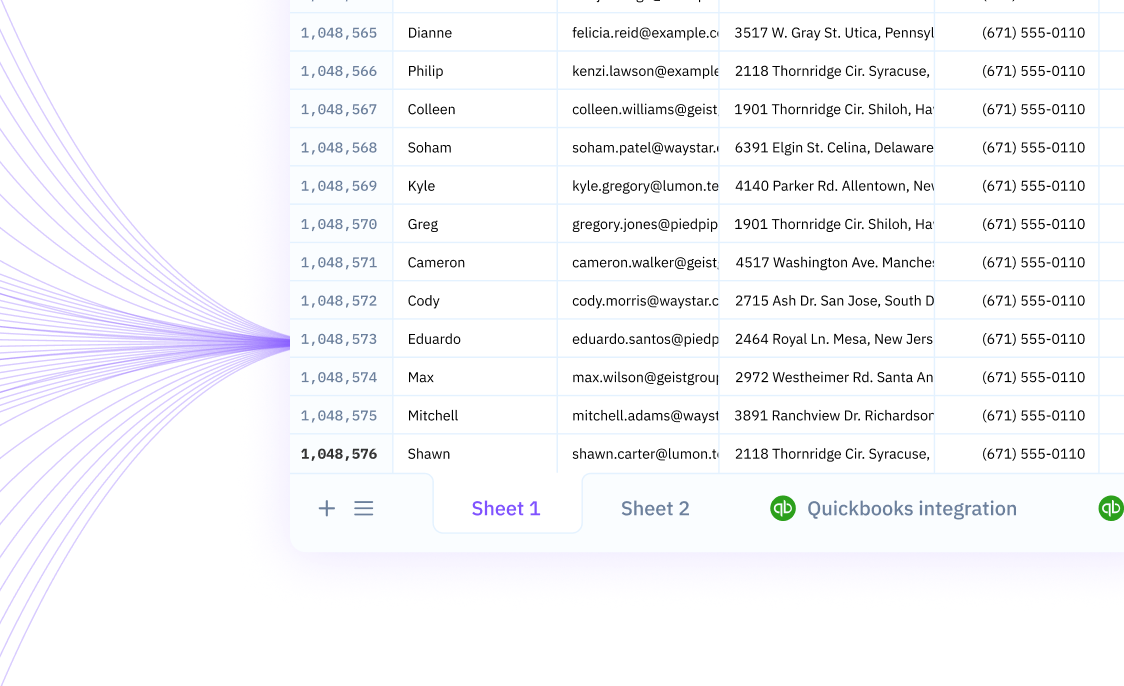
Export Graylog to CSV

Overview
Welcome to your comprehensive guide on exporting Graylog logs to CSV format, a valuable process for those seeking to analyze log data using the familiar and flexible environment of spreadsheet applications. Graylog, running on the Ubuntu platform, offers robust logging capabilities and, starting from version 2.4.7, enables users to export their logs directly to CSV files even in its free version. This page will delve into the essence of Graylog, the steps to efficiently export logs to CSV, explore various use cases highlighting the importance of this functionality, introduce an alternative CSV export method using a community plugin, and provide a helpful Q&A section to address common queries related to the CSV export process. Whether you're an admin user looking to leverage the built-in export option marked by three dots at the top of the Graylog page, or you're considering the graylog delimited file output plugin from GitHub for a more streamlined experience, we've got you covered.
What is Graylog?
Graylog is a log management tool utilized for managing log data from various sources including security, application, and IT infrastructure. It serves as a SIEM (Security Information and Event Management) tool, offering functionalities that assist in threat hunting and the visualization of log data. Through Graylog, users can set up alerts and automate compliance reporting, enhancing the security and efficiency of IT environments.
Exporting Graylog Logs to CSV
Using the Admin Account on the Free Version
To export logs from Graylog to a CSV file using the free version, you must be logged in with an admin account. Look for the CSV export option, which is symbolized by three dots, typically found within the search area of your Graylog interface. Clicking on this will allow you to export the logs in CSV format.
Using the Admin Account on the Paid Version
If you are using a paid version of Graylog, the process is the same as with the free version. Ensure that you are logged in with an admin account to see the CSV export option. Once you find the three dots indicating the export feature, select it to download your logs in CSV format.
For Older Versions of Graylog
If you are running an older version of Graylog and cannot find the three dots indicating the CSV export option at the top of the interface, it is likely that this feature is not available in your version. In this case, you may need to update to a newer version of Graylog to use the CSV export feature.
Documentation for CSV Exports
For further information on CSV exports, including potential troubleshooting and advanced options, refer to the official Graylog documentation on CSV export located at https://docs.graylog.org/docs/csv-export.
Streamline Your Data Management with Sourcetable
Transitioning from Graylog to traditional spreadsheets can often involve a cumbersome process of exporting to CSV files and then importing them into a spreadsheet application. Sourcetable offers a seamless alternative that elevates your data management to new levels of efficiency. By enabling direct synchronization of your live data from Graylog, Sourcetable eliminates the need for manual exports, ensuring that your spreadsheet always reflects the most up-to-date information.
With Sourcetable, you unlock the potential for robust automation, effortlessly pulling in data from multiple sources into a single, intuitive spreadsheet interface. This not only saves time but also reduces the risk of errors associated with manual data transfer. Furthermore, Sourcetable’s advanced querying capabilities empower you with business intelligence insights, allowing you to make informed decisions without the hassle of navigating between different applications and data formats.
Common Use Cases
-
Auditing and compliance reportingG
-
Offline log analysisG
-
Data backup and archivingG
-
Integration with other reporting toolsG
-
Sharing logs with team members or external partiesG
Frequently Asked Questions
Why can't I see the option to export Graylog logs to CSV?
The CSV export option is accessed by clicking the three dots at the top of the screen, which may not be present in some versions of Graylog or in the free version of the software.
My CSV export is missing many events. Why is this happening?
It's possible that the missing events do not have the fields you intended to export, or there may be limitations in the version of Graylog you are using.
Where can I find documentation for CSV exports for Graylog version 2.4.7?
For version 2.4.7, the CSV export documentation can be found at https://readthedocs.org/projects/graylog2-docs/downloads/pdf/2.4/.
Can I export to CSV using Graylog version 2.4.7?
Yes, CSV downloads are available in the old version of Graylog, but the method to export may vary if the three dots at the top are not present in your installation.
Conclusion
Graylog, compatible with the Ubuntu platform, allows users to conveniently export logs into a CSV file from the search page. This feature is accessible through the three dots at the top of the search page, although it is important to note that in Graylog version 2.4.7, an older version, this option is not available. For any version, you must have an admin account to perform the export. If you're looking to streamline your workflow further and bypass the CSV export process, consider using Sourcetable. Sourcetable can import your data directly into a spreadsheet, enhancing efficiency and data management. Sign up for Sourcetable today to get started and take your data handling to the next level.


